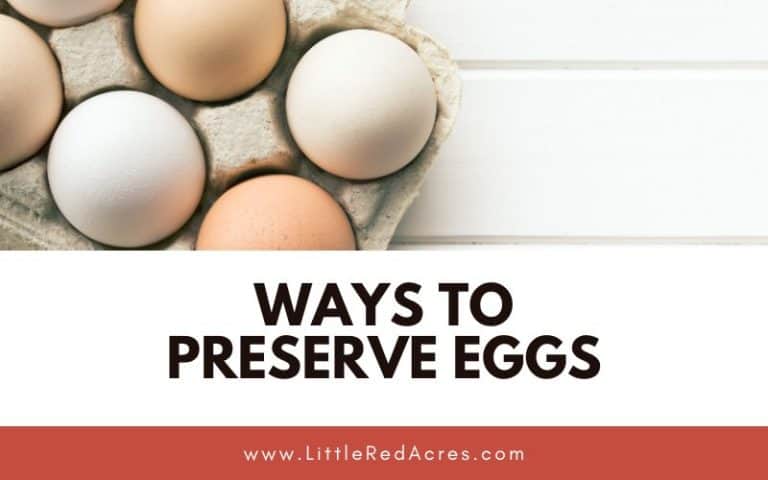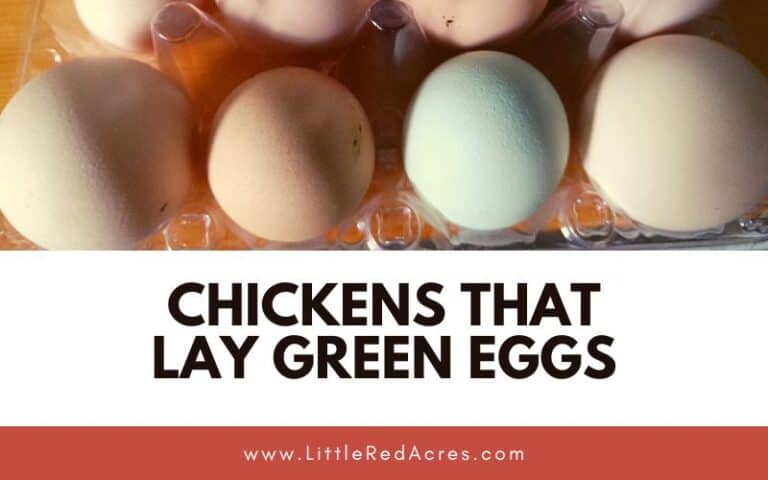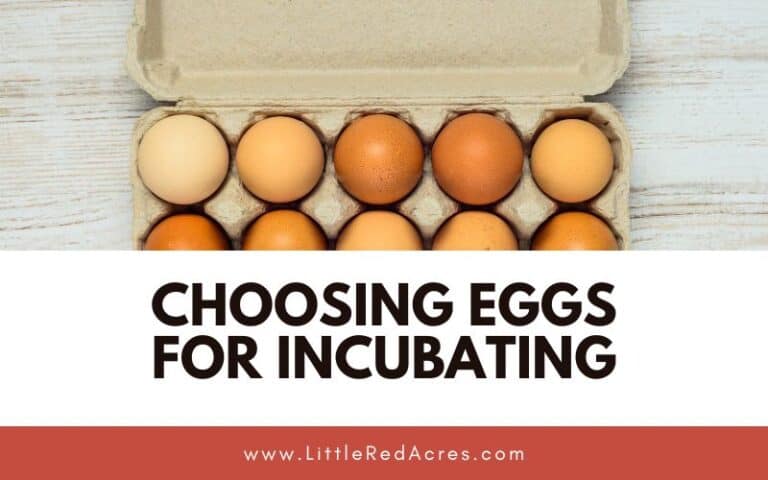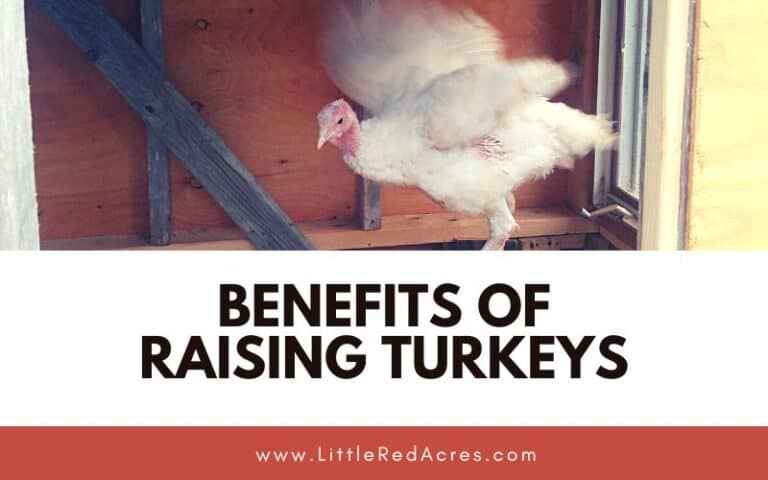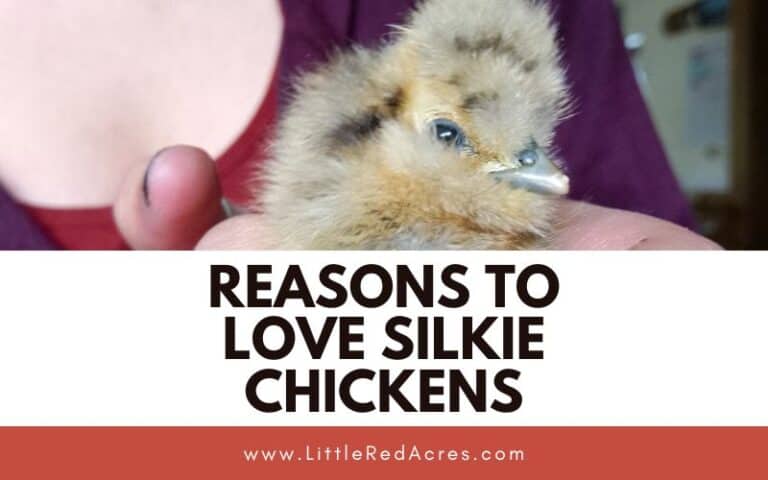How to Get Started Raising Chickens for Beginners
Inside: Get started raising chickens with expert guidance in our beginner's guide. Essential tips for success on your chicken-raising journey.
The first step is to want chickens. And then you are in trouble because you'll want all the chickens, I want all the chickens, chicken math is a real problem for chicken lovers. Start slow when you are getting started raising chickens. Do your research. Talk to people local to you who have chickens if possible and start from there. It is easy to get in over your head with chickens.

This post may contain affiliate links, see my disclosure policy for more information.
The first step is to learn everything you can about raising chickens where you live, and why you want chickens. Do you want them for their eggs? Are you raising them for the meat? There are specific birds for both of those purposes.
How to Get Started Raising Chickens for Beginners
Read everything you can about raising chickens in your specific area, your zone with your weather because it is going to make a difference in how you go through each season. Having chickens in the winter is completely different from taking care of and raising chickens in the summer.
Get updates & freebies delivered to your inbox!
Make sure you have the time and energy for their care. They need clean water and food every single day. In the winter you need to make sure that their water isn't frozen for example.
Picking Chickens
What you want chickens for is step one. Meat or eggs? Or dual-purpose. We do not have experience with meat birds (meat kings) at this time, but we do have dual-purpose birds and a couple of layer birds.
What kind of chicken you want is going to determine how many chickens you want to get. The bigger the bird the more:
- feed you will need
- space you will need
- more time you may have to give them
Are you going to start with chicks or are you getting layers? Pullets? A pullet is considered a teenage chicken from about 7-17 weeks old, and getting ready to lay eggs. Once they start laying eggs they are considered hens.
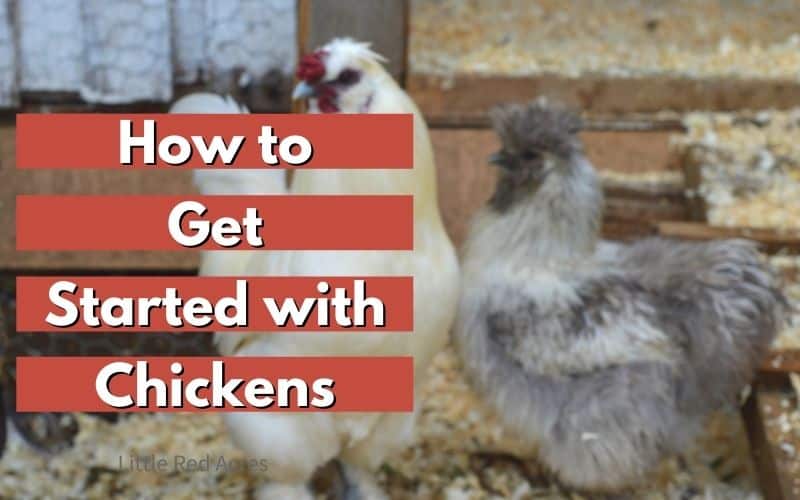
Housing Chickens
Start thinking about the time you are able to spend with your flock; the housing the birds require; a plan for how you’ll collect and use eggs; and what you’ll do with the birds after they retire from laying eggs.
A good rule of thumb is that regular-sized chickens benefit from at least three to five square feet of coop space per chicken if they have access to the outdoors.
Then start small with a flock of 4 to 6 birds which is more than enough for the average family consumption.
Collecting Eggs or Not Getting Eggs
Some chickens will be naughty and eat their eggs. I recommend a roll-away nesting box where the eggs will roll away from the chickens to keep them safe.
Chickens will slow down their laying in the colder months, and while they molt. You can add a light to their coop to simulate longer days to keep them laying. If you are relying on their eggs this is something to keep in mind.
Not everyone will keep their hens past laying every day. Some choose to either sell their older hens or put them in the “freezer camp”, which means butcher them. This is a great case for raising dual-purpose chickens.
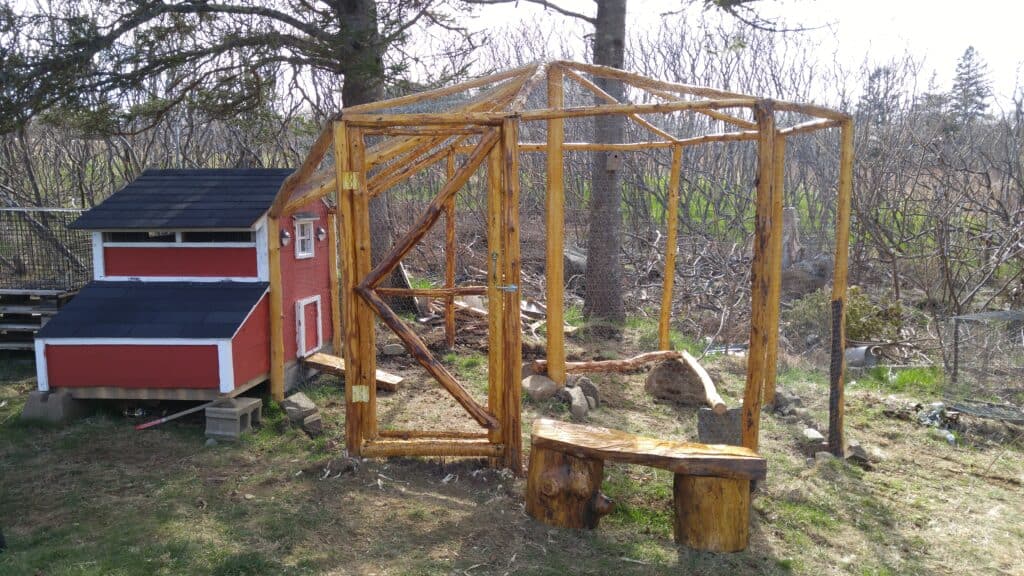
Free-range or Run?
Will you let your chickens free-range? Are there predators that could/will get your chickens if you free-range? Do you have space to have a safe run?
We have runs for our chickens. We now have 4 different coops and 4 different runs. There are a few reasons we chose runs for our flocks. Such as:
- breed-specific coops – we don't want barn mix
- predators – we live in the woods and numerous animals would love to eat my birds
- our home is close to the road and I don't want to find my birds dead on the road
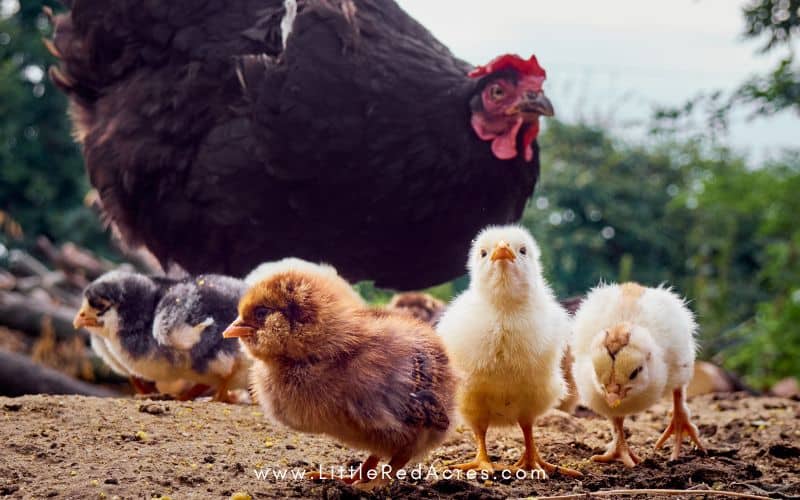
Tending to your Chickens
What are you going to do with their manure? We set it aside and use it for our garden in the fall. You can't add it directly to your garden as it will burn it. Chicken manure is hot manure. Plants, especially young plants, that come into contact with fresh chicken manure will be “burned” by the nitrogen content and will quickly wither.
You will need a place to keep the manure until you can use it or a way to dispose of it.
There is a lot of thought that needs to go into deciding to get and raise chickens. It is best to research the breeds that you are interested in raising, because not all chicken breeds are the same! Some are more aggressive than others, there is a size difference between them and, most importantly to me, egg production.
Frequently Asked Questions
How few chickens can you have? Chickens are social creatures, so you should have at least 2 chickens.
Do you need a rooster with chickens? No. Unless you want fertilized eggs you do not need a rooster. they do offer protection for your hens though.
How long does a chicken live? On average, chickens live for 5-10 years. They can live longer though! A hen's egg production is going to slow down after a few years though.

Want More?
7 Reasons to Have Backyard Chickens

